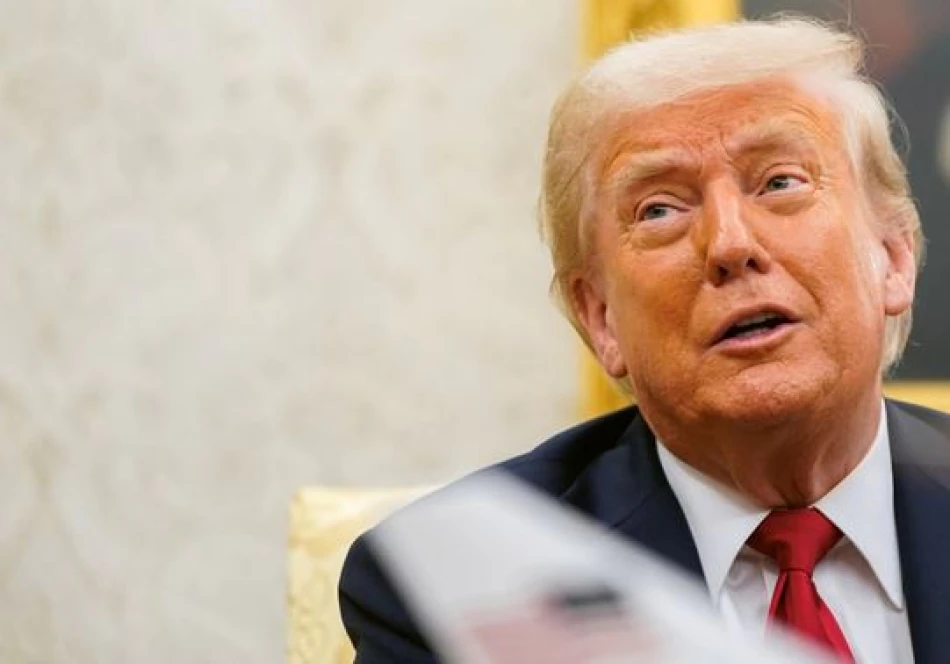
Trump Optimistic About Imminent Gaza Agreement
Trump Claims Gaza Ceasefire Deal "Very Close" as Hamas Signals Readiness for Talks
President Donald Trump declared that a Gaza ceasefire agreement is "very close" following Hamas's announcement that it is prepared to immediately enter negotiations after receiving new proposals from Washington. The development marks a potential breakthrough in efforts to end the conflict and secure the release of Israeli hostages, coming just days after Trump issued what he called his "final ultimatum" to the militant group.
A New Diplomatic Push Takes Shape
Speaking to reporters during his return to Washington from New York, Trump expressed optimism about the prospects for a deal. "I think we're going to have a deal on Gaza very soon," he said, adding his belief that all hostages—both living and deceased—would be returned. "I think we're going to get them all back."
The timing of Trump's comments is significant, coming shortly after Hamas issued a statement acknowledging receipt of "some ideas from the American side to reach a ceasefire agreement" through mediators. The group welcomed "any move that helps efforts to stop the aggression against our people," signaling a potential shift in its negotiating stance.
The Ultimatum Strategy
Trump's approach represents a marked departure from traditional diplomatic language, employing what appears to be a deliberate pressure campaign. On his Truth Social platform, he had posted: "The Israelis have accepted my terms. It's time for Hamas to accept as well. I have warned Hamas of the consequences of not accepting. This is my final warning, and there will be no other warning."
Breaking the Negotiation Deadlock
This direct, ultimatum-based approach contrasts sharply with the more measured diplomatic efforts that have characterized previous ceasefire negotiations. By publicly stating that Israel has already accepted his terms, Trump appears to be isolating Hamas as the sole obstacle to a deal, potentially increasing pressure on the group to agree.
Strategic Implications for Regional Stability
The potential breakthrough comes at a critical juncture for Middle East stability. A successful ceasefire would not only address the immediate humanitarian crisis in Gaza but could also reshape regional dynamics and demonstrate the new administration's diplomatic capabilities early in Trump's second term.
Hostage Release Mechanics
Trump's specific mention of retrieving both living and deceased hostages suggests the negotiations encompass comprehensive terms for prisoner exchanges and remains recovery—historically among the most complex aspects of such agreements. The inclusion of deceased hostages indicates negotiations have progressed to detailed implementation discussions.
Market and Geopolitical Ramifications
A Gaza ceasefire would likely have immediate effects on global markets, particularly energy prices and defense stocks. Regional stability has been a key concern for investors, with ongoing conflict contributing to risk premiums across Middle Eastern assets. A successful resolution could also enhance Trump's diplomatic credibility and influence future negotiations in the region.
The development also positions the United States as the primary broker in Middle East peace efforts, potentially sidelining other international mediators and reinforcing American influence in regional affairs. This aligns with Trump's broader foreign policy approach of direct, bilateral engagement over multilateral frameworks.
The Critical Window
While both sides appear to be moving toward agreement, the success of these negotiations will ultimately depend on the specifics of implementation and verification mechanisms. Hamas's willingness to engage "immediately" suggests urgency that could either facilitate rapid progress or indicate external pressures that make delay untenable for the organization.
The next 48-72 hours will likely prove decisive in determining whether this diplomatic momentum translates into a concrete agreement or represents another false dawn in the long-running conflict.
Most Viewed News

 Sara Khaled
Sara Khaled






